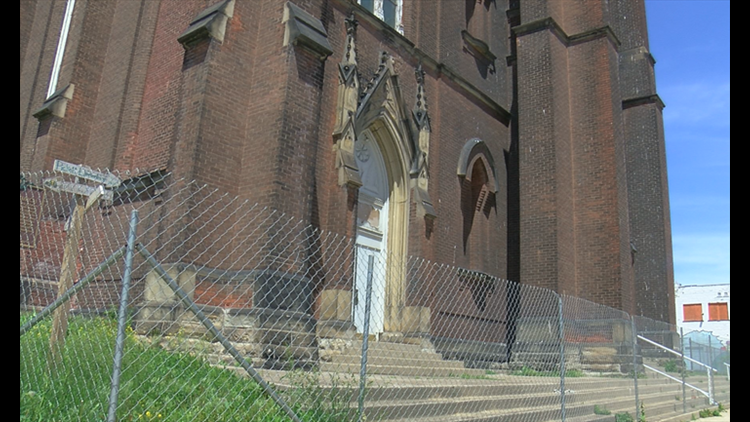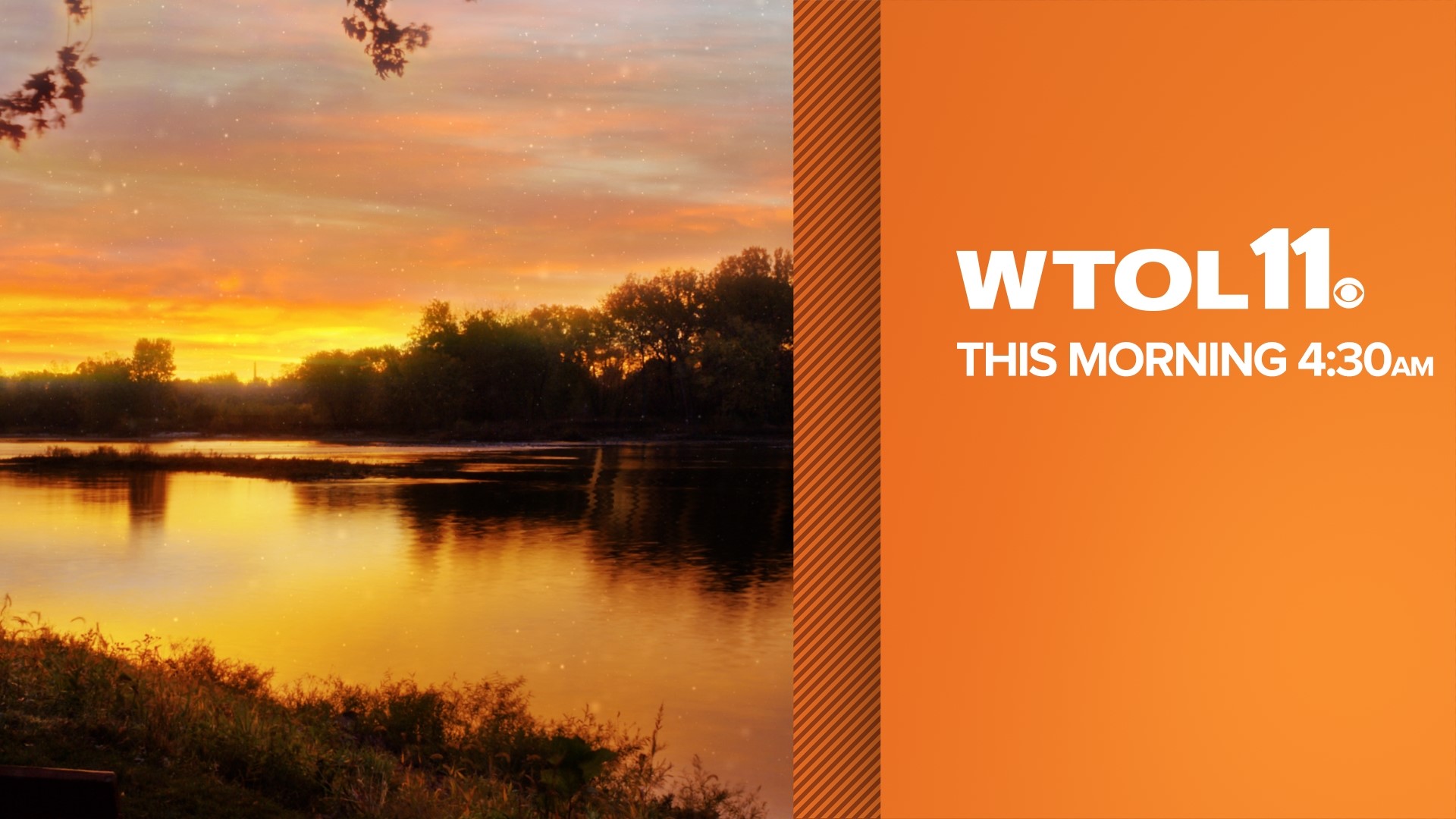TOLEDO, OH (WTOL) - Toledo Mayor Wade Kapszukiewicz, U.S. Rep. Marcy Kaptur (D., Toledo) and Bishop Daniel Thomas met Tuesday morning to discuss the fate of St. Anthony Catholic Church, which had been slated for demolition.
Representatives from the Diocese of Toledo gave their proposal on Tuesday for saving St. Anthony Catholic Church from demolition — along with a 48 hour window for officials to consider it.
At Tuesday's meeting at the Pastoral Center, Bishop Thomas held a dialogue with Kapszukiewicz and Kaptur to discuss the path forward for the 1891 structure.
The bishop accepted their proposal to save the building, which was expressed during a news conference Saturday.
In a statement, the diocese said it was willing to give the building and the land to Kaptur and Kapszukiewicz, with the decision to be left to them on who would ultimately receive the site.
Kaptur has pledged to pay $70,000 for the mobilization fees of the demolition firm, and the bishop thanked her for the offer. The fees are to be given directly to the firm, according to a statement from the diocese.
The bishop also asked the mayor to assist the diocese in the costs associated with breaking the signed contract and to fulfill the commitment to the demolition firm.
Bishop Thomas then asked Kaptur and Kapszukiewicz to accept the former church and the land on which it is located as a gift from the diocese. They must decide who will the best recipient will be -- the Padua Center (the property originally was donated to the center), the City of Toledo, or the Lucas County Land Bank.
The bishop seeks a response on the plan in writing within 48 hours. Demolition is on hold for now, pending Thursday's noon deadline.
Kapszukiewicz and Lucas County Land Bank President David Mann both sent letters to the bishop asking him to reconsider the decision to raze the building, citing its potential for redevelopment for the neighborhood.
Demolition work was scheduled to begin as early as Monday.
On Sunday afternoon, however, the city of Toledo issued a stop work order, citing two reasons: the city's building inspections department does not have documentation that water and sewer caps have been installed and an out-of-compliance fence. As of Monday, some of those issues had been resolved.
On Saturday, local politicians, community leaders and former church leaders rallied outside St. Anthony calling for the Diocese of Toledo to save the building, which closed in 2005 because of declining membership.
Meanwhile, Doug Berger of the group Secular Humanists of Western Lake Erie said the diocese should do anything it wants with the church.
"Because we believe in separation of church and state. And don't believe city officials should force the diocese to keep a building that it doesn't want," said Berger.
The group believes that "government demanding the Toledo Diocese to keep a building that needs massive costly renovations, with no actual plan for reuse, is an impermissible burden on the Church and crosses the line between church and state."
However, Councilman Ujvagi doesn't believe it crosses this line.
"The notion of preserving historic buildings in our community, re-purposing them so they continue to be a symbol in our community is not a question of church and state. It is to me the question of the right thing to do. The discussion at this point is not about bringing back the parish," Ujvagi said.
The Secular Humanists of Western Lake Erie say these comments by Ujvagi are misleading at best.
The group issued a new statement Tuesday morning:
The Secular Humanists of Western Lake Erie (SHoWLE) believe that the comments of Councilman Peter Ujvagi in a news report yesterday about the city's effort to stop the Diocese of Toledo from tearing down St. Anthony's Church on Nebraska Ave. are at least misinformed and not helpful.
Mr. Ujvagi's claim that he didn't see any church and state issues in the crusade is misleading at best. St. Anthony's Church is not in Ujvagi's council district so we ask why does it seem he is taking a lead to save the church?
Why have we not seen or heard from members of the actual neighborhood where the church resides?
Would there be a marshaling of the city council and leadership to the cause if Rep. Marcy Kaptur didn't have a personal conflict of interest in saving the church?
The Padua Center currently serves the neighborhood with needed services and had planned to use the cleared land to expand their reach. Does Mr. Ujvagi and the city have an alternative plan to help them?
The church is decrepit and a potential safety hazard especially with the 200 foot plus steeple. Who is going to pay for any renovation? The city can't because the property is owned by the church and the 1st amendment prohibits direct funding of religious groups. The church has no parishioners so they can't fund any renovations.



